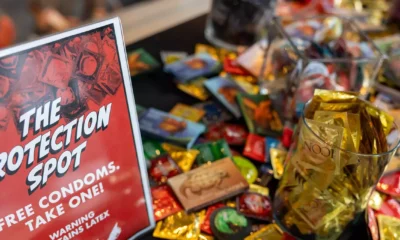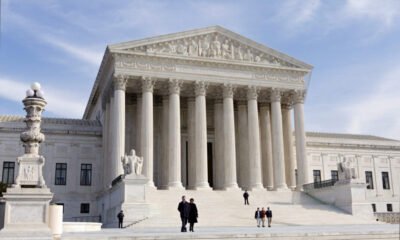Asylum Seeker Advocacy Project
Despite Supreme Court Ruling, Trump’s Citizenship Order Leaves Arizona Kids Unscathed — For Now

The U.S. Supreme Court has granted the Trump administration the ability to begin removing citizenship rights from numerous children with noncitizen parents within a month. However, infants born to immigrants in Arizona will continue to have the protections afforded by the U.S. Constitution—for the time being. Advocates for immigrant rights are mobilizing to extend and solidify these legal protections nationwide.
In a recent 6-3 decision, the Supreme Court’s conservative majority ruled that nationwide injunctions against the executive order barring citizenship for children born after February 19, 2025, likely overstep federal courts’ equitable authority. The ruling means that the initial nationwide injunctions will only last for another 30 days, after which they will revert to jurisdiction limited to the states and parties involved in the lawsuits, with Arizona included.
Following the announcement of the executive order aimed at undermining birthright citizenship, 22 Democratic-led states, along with Washington D.C. and San Francisco, filed suit in various federal courts. A Seattle judge swiftly blocked the enforcement of Trump’s order, deeming it “blatantly unconstitutional” for disregarding the 14th Amendment and established legal precedents concerning citizenship rights on U.S. soil.
While protections may not extend to children born in 28 other states not involved in the lawsuits, those born in Arizona remain citizens regardless of their parents’ immigration status as the legal proceedings continue. The group of Western states is challenging the executive order’s constitutionality, asserting its conflict with the 14th Amendment.
Earlier in the month, the 9th U.S. Circuit Court of Appeals reviewed the Trump administration’s arguments to nullify Arizona’s injunction. The judges expressed skepticism about the administration’s stance that the 14th Amendment does not apply to children of undocumented immigrants. Notably, the Supreme Court refrained from ruling on the constitutional merits of the executive order, a question likely to surface again as the legal battles progress.
Arizona Attorney General Kris Mayes reaffirmed her commitment to safeguarding the rights of children with noncitizen parents born in the state. In 2022, around 3,400 births in Arizona involved parents lacking legal residency. Mayes emphasized the ongoing legal efforts, asserting that the order would lead to increased costs and infringe on fundamental freedoms.
In light of the Supreme Court’s ruling, legal organizations are pursuing alternative avenues, including a class action lawsuit. Pro-immigrant groups like CASA Inc. and the Asylum Seeker Advocacy Project filed a motion in Maryland seeking to represent individuals affected by the executive order, encompassing both children and their parents. This approach aims to bypass limitations imposed by the Supreme Court while enabling protections comparable to past nationwide injunctions.
William Powell, a senior counsel involved in the class action, noted that its nationwide implications would apply across the board for those within the class, even if they are not named in the lawsuit. They are also requesting a temporary restraining order or preliminary injunction to halt the executive order while the class action is assessed. This step is critical to ensuring no gap exists that could jeopardize citizenship status for children born after the executive order’s cutoff date.
Concerns about the potential implementation of the executive order resonate deeply with individuals directly affected. Liza, who remains unnamed in the legal battle, expressed anxiety over her child’s citizenship status due to her husband’s asylum-seeker status. Similarly, Juana, reportedly pregnant and from Colombia, criticized the Supreme Court’s decision and lamented the uncertainty faced by countless families not involved in ongoing lawsuits.
“This isn’t the United States I believe in,” she stated. “Every child deserves what this country has promised, not just those fortunate enough to live in states with legal protections.”

















